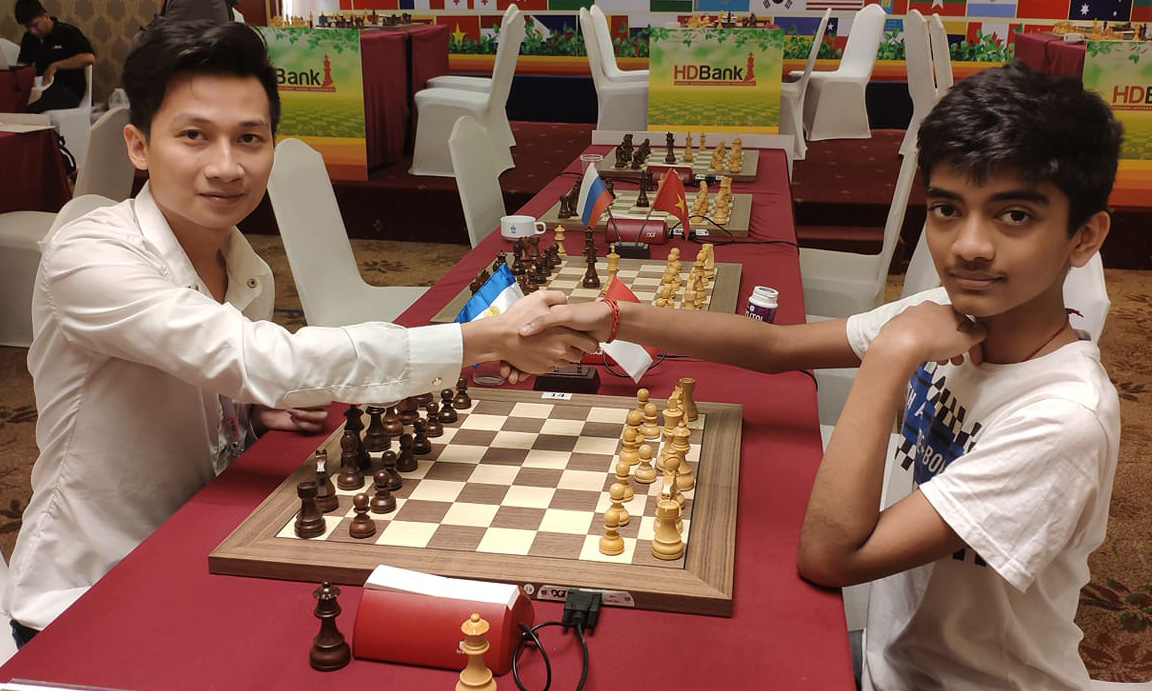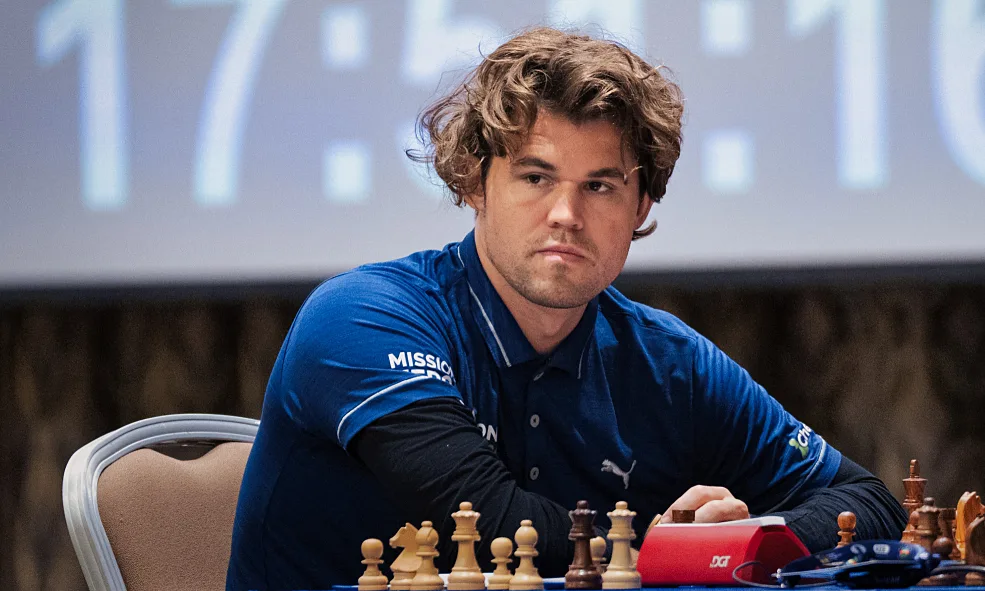Magnus Carlsen doesn’t play chess. He absorbs it, reshapes it, and makes it bend to his will, usually with a calm expression and a slouch in his chair. Ask a computer to describe his style, and it might short-circuit. Ask a grandmaster, and you’ll get paragraphs of admiration, contradictions, and grudging acceptance: Carlsen is not just the best player in the world. He’s the most complete player of the modern era.
The Ratings: Howell & Giri’s Take
GM David Howell, who once lost to Carlsen in a World U12 Championship final, rated his ex-rival with near-mythical numbers:
- Strategy: 99
- Intuition: 97
- Defense: 95
- Calculation: 90
- Attacking: 88
- Time Management: 91
- Overall: 94
Anish Giri playfully poked at these scores: “You dropped his attack below 90… just to show you’re impartial, huh?” But Giri agreed with the main idea: Carlsen’s strength isn’t brute force, it’s suffocation. His strategy-intuition combo is “exceptional”, his attacking play evolved dramatically after 2013, and his only real weakness? “Sometimes he doesn’t respect the opponent’s resources. He thinks: what can this idiot do?”
That “idiot” quote? Straight from Carlsen himself.
Read More: Did Magnus Carlsen Solve Chess?
Carlsen on Carlsen: “I’m fairly universal.”
In his own words, Carlsen describes himself as a universal player with a slight leaning toward the technical. He’s comfortable in quiet endgames, wild complications, dry positional squeezes, or blunt-force attacks, whatever gets the job done.
His style evolved over time. The Carlsen who beat Anand in 2013 was pure Karpov: minimalist, endgame-heavy, allergic to risk. But later Carlsen, especially during the mid-to-late 2010s, began playing sharper, riskier chess. The result? A monster who could grind you down like a python (GothamChess’s words) or strike tactically if you dared to loosen up.
Calculation, Time, and That “Arrogant” Genius
His calculation is elite, though not “alien-like” in the way of a Tal or Kasparov. In fact, Giri points out that Carlsen’s biggest flaw is occasionally underestimating his opponents: he doesn’t always look for their best resources. He sees his own lines clearly but assumes, often correctly, that the opponent won’t find the right move.
In time management, Carlsen is a mixed bag. He’s rarely in panicked time trouble but is known to burn time in critical moments, sometimes too much. Giri recalls Carlsen’s game against Gukesh where he realized too late he had to speed up, and while he can accelerate, he often regrets not doing so earlier.
Attacking and Evolution
Carlsen was never known as an attacking player in the traditional sense. But that changed. According to Giri, he added “the dimension of attacking” to his repertoire in the years after becoming World Champion. Today, while he’s still not a Tal or a Shirov, he’s perfectly capable of executing sharp attacks if the position demands it. GothamChess summarized it best: “He will squeeze water from a stone, but he can also bring the hammer.”
Openings, Endgames, and the Middle-Game Squeeze
Carlsen’s openings are famously dry. He doesn’t chase novelties. He doesn’t aim to crush you out of the gate. He plays openings that give him “a game,” then starts outplaying you from move 15. American NM Robert Plunkett compares him to both Fischer and Karpov: Fischer-like in his will to win, Karpov-like in his ability to coordinate pieces and crush you without fanfare.
His endgames are legendary. Perhaps no player in modern history wins as many drawish positions as Carlsen. He plays until there’s absolutely no hope left for the opponent, and then plays a few more moves just in case.
See More: What is Magnus Carlsen’s IQ?
Instinct & Psychology: The Invisible Weapons
Carlsen’s intuition is off the charts. He doesn’t always calculate deeply, he feels what move should come next. That’s why strategy and intuition both earned scores in the high 90s. His ability to read a position, sense weaknesses, and press endlessly without taking risks is what separates him from everyone else.
And yes, there’s psychology. He’s famous for mentally exhausting opponents. As Carlsen once said: “My opponent is an idiot until proven otherwise.” It’s not arrogance for the sake of ego, it’s confidence used as a tool to dominate.
The Best Advice He Got? Stay Curious
One of the best stories about Carlsen comes from his early days. A local mentor noticed he kept playing the same Sicilian variation. Instead of praising his consistency, the coach told him: “If you’re not going to explore, you’re not going to learn.” That moment of curiosity sparked a life of versatility. And that curiosity is still there, one of the main reasons why he’s stayed at the top for over a decade.
Final Word: The Chess Python
Magnus Carlsen is what happens when you combine strategy, stamina, intuition, and raw willpower into one player. He’s not the flashiest. He’s not the most aggressive. But he’s the most complete. He doesn’t need to blow you off the board, he just needs you to sit there long enough for the pressure to crush you.
He’s a python. A champion. A universal genius.
And maybe the greatest to ever play the game.

I’m Xuan Binh, the founder of Attacking Chess, and the Deputy Head of Communications at the Vietnam Chess Federation (VCF). My chess.com and lichess rating is above 2300. Send me a challenge or message via Lichess. Follow me on Twitter (X) or Facebook.

